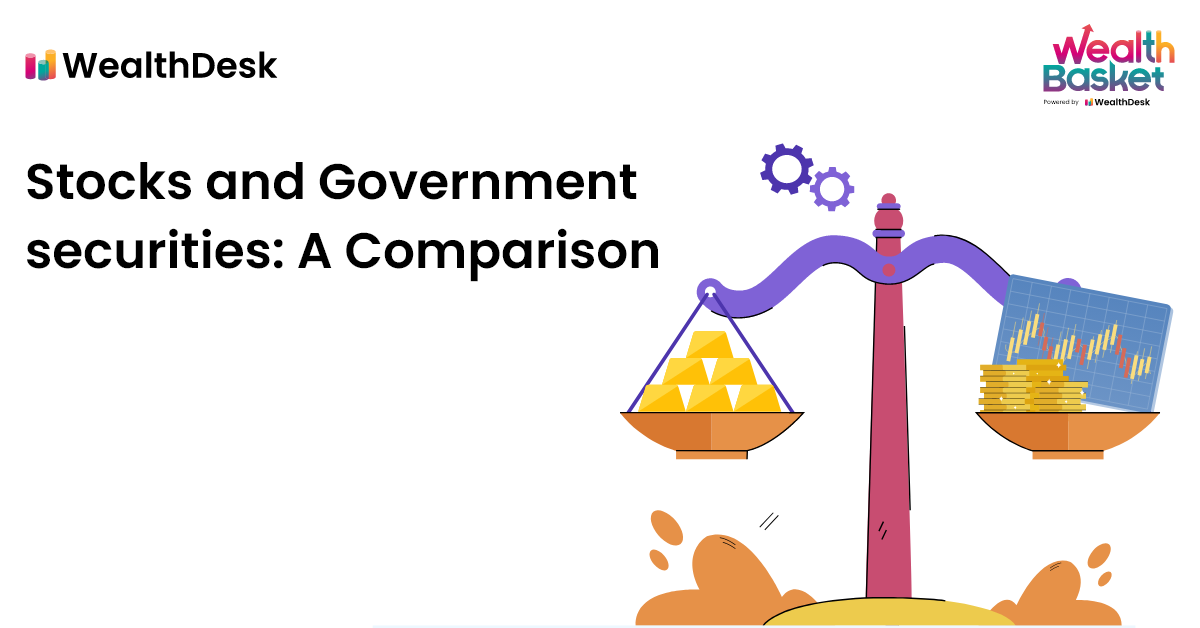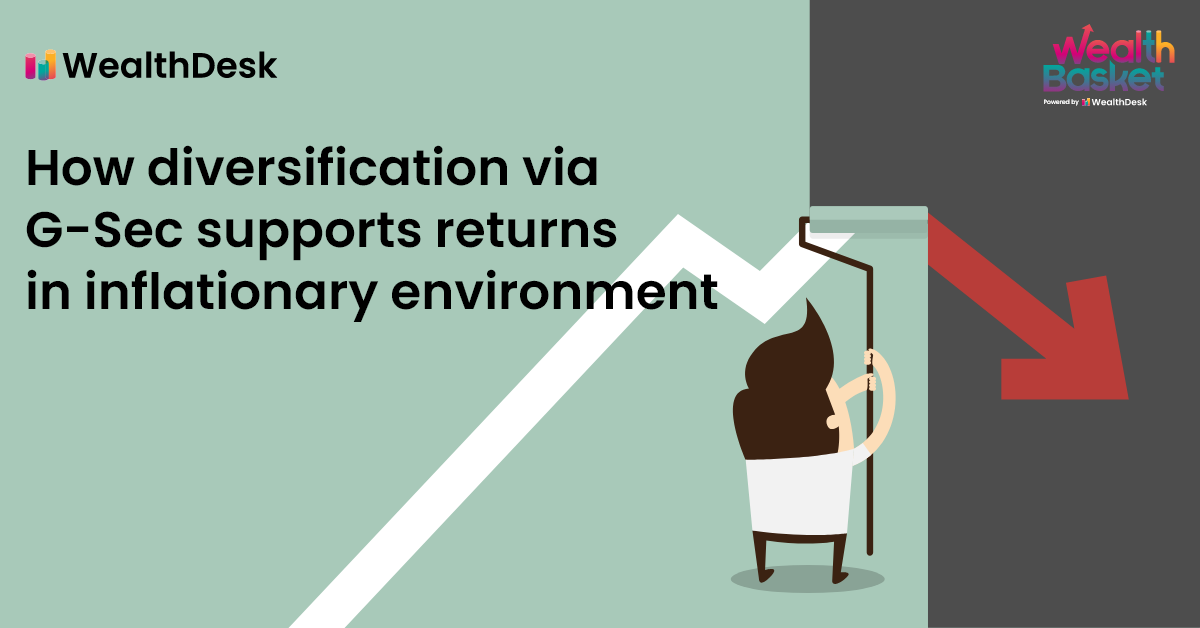Government securities are debt instruments while stocks give you partial ownership in a company. The biggest difference lies in the risk levels: government securities are assumed to be risk-free, while stocks are subject to market risks. Another key difference lies in the regularity of income (dividends v/s coupons).
In this article, we take a deeper look into the differences between government securities and stocks:
Structure
Equities and bonds are two ways of raising money from the market and are good investment instruments. Their structures are different, and an investor must understand the difference before choosing to add any of them.
Stocks give an investor partial ownership of a company. You are purchasing a tiny part of the company when you are buying stocks. The more stocks you hold, the more of the company you own. Shareholders of normal equity have a right to vote on definite corporate decisions. Every shareholder of normal equity has the right to put in one vote for every unit of stock held.
Government securities are a loan from the investor (also called creditor/lender in this case) to the government. The government pays interest to the bondholders. Government securities come with a sovereign guarantee. Bondholders do not have voting rights.
Types of risks
Types of risks in stocks:
Stocks are subject to market risks and business risks.
A company’s performance is affected by various factors like the strength of competitors, the health of upstream and downstream businesses, management, availability of quality employees, attrition, government support for their industry, and macroeconomic factors. Additionally, dividends to equity stocks have a lower priority than interest rate payments and dividends to preferred shareholders.
In case of winding up of operations, the company has an obligation to pay off debt, before returning the residual to the shareholders. Hence, due to the various factors influencing the performance of a company and the lower priority of dividends, stocks are considered riskier than debt instruments.
Types of risk in g-secs:
Government securities are subject to inflation risk and interest rate risk.
Government securities pay a fixed interest on their face value. When inflation rises, the real value of the interest payments drops. Additionally, the real value of the principal also drops. Investors can sidestep this risk by investing in Inflation-Indexed Bonds (IIBs) that provide inflation protection to both principal and interest payments.
Bond prices tend to have an inverse relationship with interest rates. When interest rates rise, new bonds would be issued with higher interest payments and become more attractive than old bonds. Due to a loss of demand for old bonds, their price will fall.
Similarly, when interest rates fall, new bonds would be issued with lower interest payments. Interest rates in bank savings accounts and fixed deposits will drop. Therefore, old bonds with higher interest payments will experience more demand. This leads to a rise in the price of old bonds.
It should be noted that the bond price variations, during the period of the bond, will not affect the amount received on maturity.
Capital Gains
Capital gains are the main motivation for investing in stocks. Stocks hold a higher potential for capital gains than government securities. Stock prices vary a lot more than g-sec prices. Equity buyers (both investors and traders) can aim for gains in the long-term (more than a year), short-term (less than a year) and intraday trades (buying and selling on the same day).
Capital gains in government securities are limited as bonds are not tied to the ownership of any business. The interest payments too are fixed and regular. G-sec prices are affected mainly by macroeconomic factors and as such are generally stable. As the bonds approach maturity, the bond prices rise steadily. So we see that government securities returns are limited. G-sec returns in India are low as compared to private bonds.
Typically, government securities’ rates of returns are lower than stocks.
Dividends v/s Coupons
Profits made by a corporation are distributed to its shareholders in the form of dividends. As we have mentioned earlier, shareholders are paid after creditors (banks, bondholders and other lenders) and preferred shareholders. Also, in India, dividends are low due to reinvestment by the company (money put back into operations for scale). Therefore, dividends can not be relied on for regular income.
Long-term government securities pay interest on the face value. Coupon payments are made periodically, starting from the issue date until maturity. Coupons make for a good fixed regular income.
Summary
| Government Securities | Stocks | |
| Structure | Loans to the government | Ownership in companies |
| Types of risk | Inflation risk, interest rate risk | Market risk, business risk |
| Capital Gains | Comparatively lower, but consistent returns | Returns depend on the growth of the company |
| Risk Level | Low risk as g-secs have a sovereign guarantee | Higher risk levels as various factors could affect the profitability of a company |
At WealthDesk, investors can find WealthBaskets, which are portfolios curated by SEBI-registered professionals. You can find a WealthBasket for various investment strategies ranging from growth to momentum and various themes and sectors.
FAQs
Government securities bring 2 types of income to the investors: coupon payments (interest) and capital gains. Both are taxable.
Government securities
have lower risks than stocks and have longer tenors
than fixed deposits. Typically, long-term g-secs pay
interest at regular intervals. This makes long-term
g-secs suitable investors who want stable income at
low risk.
Banks participate in the market
for g-secs to meet liquidity requirements.
After the roll-out of the Retail Direct Scheme, retail investors can invest in government securities by opening a Retail Direct Gilt Account with RBI.


















